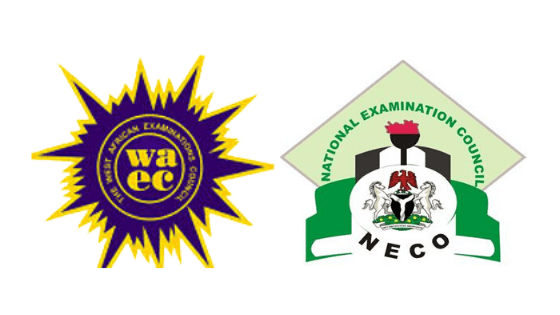Pay WAEC/NECO debts now
In February this year, the Director of Finance and Administration, National Examinations Council (NECO), Dr. Jacob Ekele, hinted that the body conducted examinations for students in 19 states of the federation on credit. Ekele stated this at a meeting with the House of Representatives Committee on Finance in Abuja. According to him, Zamfara topped the […]

In February this year, the Director of Finance and Administration, National Examinations Council (NECO), Dr. Jacob Ekele, hinted that the body conducted examinations for students in 19 states of the federation on credit. Ekele stated this at a meeting with the House of Representatives Committee on Finance in Abuja. According to him, Zamfara topped the list of states owing the examination body with over N1 billion debt. He said “Our major problem as of today is that about 19 states are owing NECO, the examination was done for them on credit especially, Zamfara.”
Ekele told the lawmakers that the debt had affected prompt remittances into the Consolidation Revenue Fund (CRF). In his response, the chairman of the committee, James Faleke, demanded that NECO should provide all relevant documents to show its income, expenditure, and remittance between 2011 and 2019. He said the Auditor General of the Federation’s report showed that NECO was owing CRF to the tune of N6 billion.
- Beware of COVID-19 third wave, PTF tells Nigerians
2 dead, 160 hospitalised as strange disease spreads in Kano
As a result of the huge debts owed to NECO, the results of over 30,000 students who wrote the Senior Secondary Certificate Examination (SSCE) in Niger State, for instance, have been withheld by the examination body. Recent media reports indicate that students who graduated in 2019 and 2020 from Niger State are yet to access their results due to unsettled debts. There are reports that even students who paid NECO exam fees to the state government are still unable to access their results because, according to NECO, such fees were not remitted to it by the state government.
The implication of this sad development is that affected students from this state risk forfeiting their admissions into higher institutions for one or more years depending on when the state government pays up its liabilities with NECO. The same situation is playing out in most states where the government pledged to pay fees for final-year secondary school students. In 2016, 12 states in the country owed the West African Examinations Council (WAEC) N2 billion.
Recall that when Niger State, for instance, started paying examination fees for students, it had no strings attached to it. When the state discovered that it was only paying for failure, criteria for benefiting from this gesture were later outlined to include making it mandatory for students to obtain five credits in the mock examinations organized by the state government. Still, exam fees for this group of students are not being paid.
From the onset, the policy of paying examination fees for students was intended by the governors that initiated them to score cheap political gains as no law was passed by the states to back it up. Yet, we believe all the states owing examination bodies can pay up their debts if they get their priorities right. Unfortunately, many of the governors have made the policy appear as if it is about themselves rather than the state governments. This explains why many choose to pay exam fees instead of providing infrastructures for learning. Students who possibly have acquired enough credit passes that would earn them admission into tertiary institutions are unnecessarily being held back. After all, some parents would be willing to pay on their own if government had not initiated the policy.
A responsible state government should appropriate funds for all its proclaimed policies. We urge every state owing examination bodies to immediately pay up its outstanding debts. Thereafter, we advise states that do not have the financial capacity to quit the policy once and for all. The examination bodies could also petition the federal government to deduct from source what the states are owing them. State governments should not be allowed to hold the future of young schoolboys and girls to ransom.
